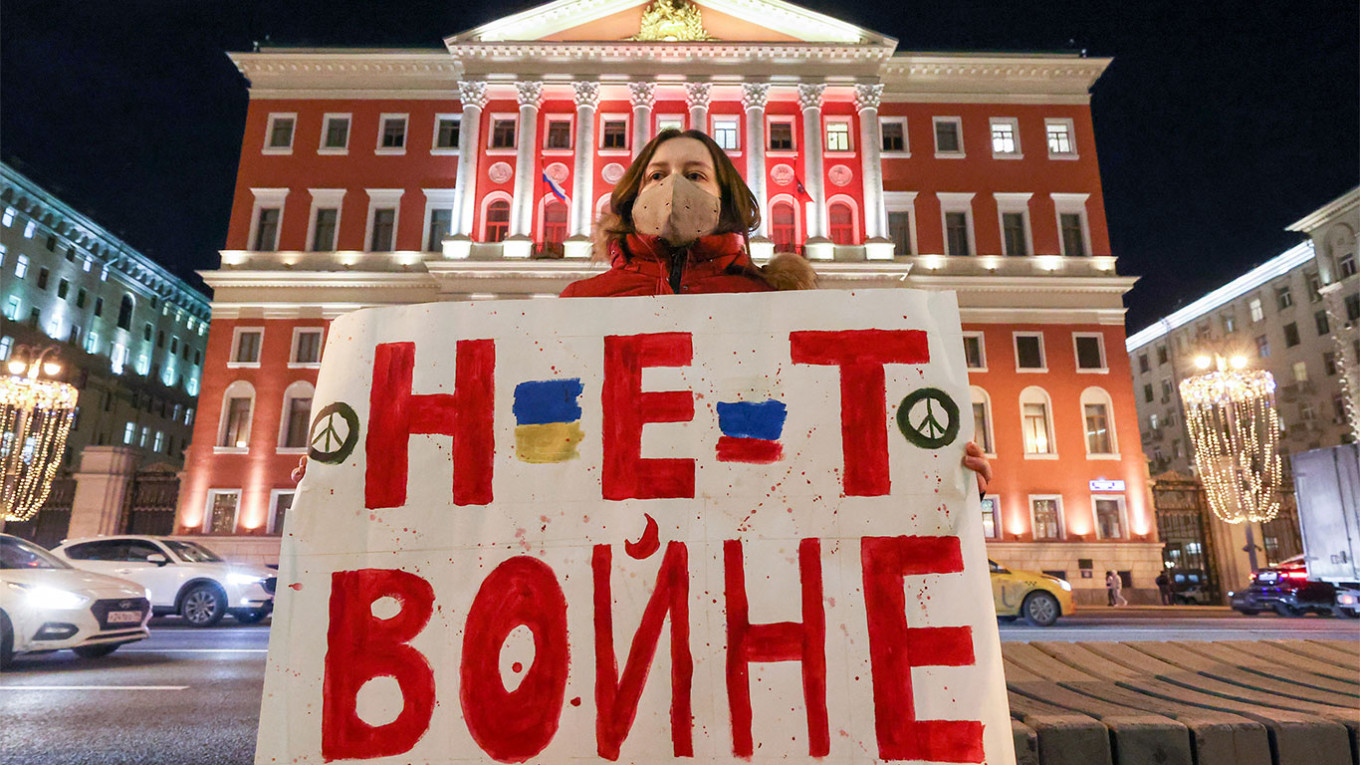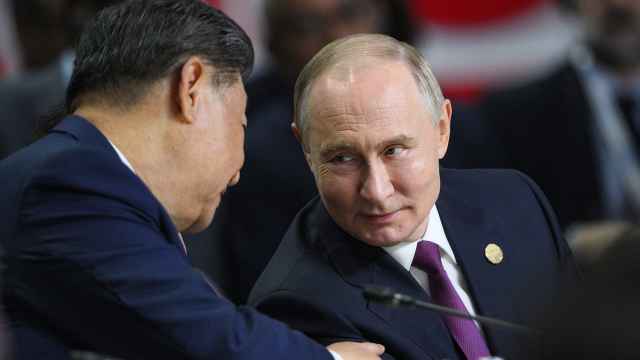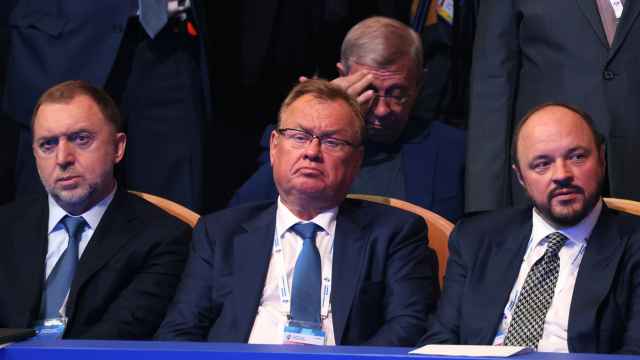As Russia persists with its brutal war against Ukraine, the question of collective responsibility is being raised – the Russians’ responsibility for the atrocities that are being perpetrated on their behalf and in their name. The ostensibly philosophical question has acquired practical connotations in view of the proposal to ban all Russians from coming to Europe, all a part of a policy of collective punishment. Are the “Russians” responsible then?
“Collective responsibility” is a problematic concept rooted in the totalitarian ideologies of the 20th century. It holds that a member of a community, broadly defined, can be held responsible for collective “sins” (however interpreted) of a particular community, and must thus face the consequences.
Both the Communists and the Nazis in their time assigned collective responsibility to whole categories of people. Stalin unleashed the Holodomor and ordered the murder or mass deportations – of the Poles, the Balts, the Chechens, the Crimean Tartars, the Koreans (among others). Hitler targeted the Jews and the Roma communities, as well as homosexuals and other collective categories. Stalin exterminated entire “classes” of people (rich peasants and other “enemies of the people”), a practice later adopted by other genocidal tyrants, not least Mao Zedong and Pol Pot. The Germans, in their turn, were assigned collective responsibility after the Second World War, and expelled in mass from the territories that Germany had lost in defeat. In short, the notion of “collective responsibility” has a dubious lineage.
But let us put these totalitarian legacies aside for the moment. Are there not philosophical underpinnings that give rise to collective responsibility? One may readily think of examples. A country with free and fair elections may commit an abominable crime, such as starting an unprovoked war against some other country, leading to deaths of hundreds of thousands. We may reasonably claim that in such cases those who voted for the government that later committed crimes may be held collectively responsible for these crimes, if not in a legal, then perhaps a moral sense.
Let's argue for just a second that all Americans are “collectively” responsible for the Vietnam War or the war in Iraq. The argument is jarring, not only because many Americans were against both wars and actively opposed them, but also because there were other, non-American actors who were equally responsible for these conflicts, whether Communist radicals or Saddam’s henchmen. In such cases, assignment of “collective responsibility” confuses matters by shifting the burden from the shoulders of those who were individually responsible for making the decisions that led to war, or for killing of civilians, or for spreading hateful propaganda.
At least in democratic societies, one can plausibly argue in favour of collective responsibility based on free and fair electoral outcomes. Matters become more complicated in tyrannies that do not permit free and fair elections. Consider Russia, which has not had a free and fair election in decades, which penalizes dissent with imprisonment, and which controls the media discourse by barring citizens’ access to alternative sources of information. Can citizens of a country such as this be collectively held responsible for actions of a government that does not represent them and thus incur collective punishment? While this might be emotionally appealing, it is difficult to see the philosophical basis for such responsibility.
One can counter this argument – as many have – by invoking the idea that “one can always do more” against even a tyrannical government: protest, sabotage, go to prison, or even flee the country. Such arguments come across best when they are made by members of the community in question. The minimum threshold for pontificating on the virtues of opposing tyrants should be a proven record of a first-hand encounter with the police baton on the back and a kick in the teeth.
But the issue is broader; and it goes to the very heart of our attachments to arbitrarily chosen communities that we then seek to other and blame for whatever ills suit our fancy. For if the Russians could always have done something else to stop Putin’s brutalities, then so could other Europeans – by refusing Russian energy supplies. The little brave acts of disobedience, like turning down the thermostat, or walking to work could go a long way to curtail Putin’s finances, putting pressure on him to desist.
The average European has probably as much ability to overthrow Putin and his henchmen as the average Russian (which is to say, not very much) but can do at least as much, and probably more than the average Russian to weaken his hold on power by denying him the hard currency that he so desperately needs to run his repressive regime. And yet for years Europe eagerly binged on Russian oil and gas and gracefully helped launder the Kremlin’s dirty money, naturally without ever feeling a sense of “collective responsibility” for nurturing Putin.
The minimum threshold for pontificating on the virtues of opposing tyrants should be a proven record of a first-hand encounter with the police baton on the back and a kick in the teeth.
Now, though, some Europeans have discovered the joys shifting “collective responsibility” for Putin onto “the Russians,” including the thousands upon thousands of Russian activists who dared to disagree, who were beaten and imprisoned, the many who are still in jail, and members of politically-deprived national minorities, and of course the children, too, and even the unborn. The heart-warming joy of collective responsibility is that it can be hoisted on anyone quite in spite of what they have personally have or have not done.
By arguing against “collective responsibility,” one should not overlook the very real individual responsibility – moral, as well as legal — of the perpetrators of specific crimes. Individuals must be held accountable for their actions because they can choose: to murder, to rape, to pillage, or to protest, to go to prison, as the last resort, to flee. The idea of individual responsibility for one’s own actions is at the very heart of Western liberalism.
It is for this reason that falling back on discredited illiberal concepts like “collective responsibility” is dangerous, for such concepts eat away at the core of what the West stands for. The European idea is different. It judges people not on the basis of what they are but on the basis of what they individually stand for.
There are many Russians who shamefully support Putin’s hideous aggression in Ukraine – directly, by waging war, and indirectly, for example by refusing to condemn Russia, or by maintaining false detachment as if the war is no concern of theirs. I will judge them individually, and let myself be judged, too, but only to the extent that they and I are personally responsible for specific crimes and misdeeds.
The question is simple: do I, and you – not the vague “collective” you, but the very personal you – oppose a crime as a matter of choice? What are we doing to stop it? And are we not looking for “others” to blame for what properly begins and stops with the two of us?
If your answer to the above is “But the Russians!” then you have already stepped onto the slippery slope towards our shared totalitarian past.
A Message from The Moscow Times:
Dear readers,
We are facing unprecedented challenges. Russia's Prosecutor General's Office has designated The Moscow Times as an "undesirable" organization, criminalizing our work and putting our staff at risk of prosecution. This follows our earlier unjust labeling as a "foreign agent."
These actions are direct attempts to silence independent journalism in Russia. The authorities claim our work "discredits the decisions of the Russian leadership." We see things differently: we strive to provide accurate, unbiased reporting on Russia.
We, the journalists of The Moscow Times, refuse to be silenced. But to continue our work, we need your help.
Your support, no matter how small, makes a world of difference. If you can, please support us monthly starting from just $2. It's quick to set up, and every contribution makes a significant impact.
By supporting The Moscow Times, you're defending open, independent journalism in the face of repression. Thank you for standing with us.
Remind me later.








